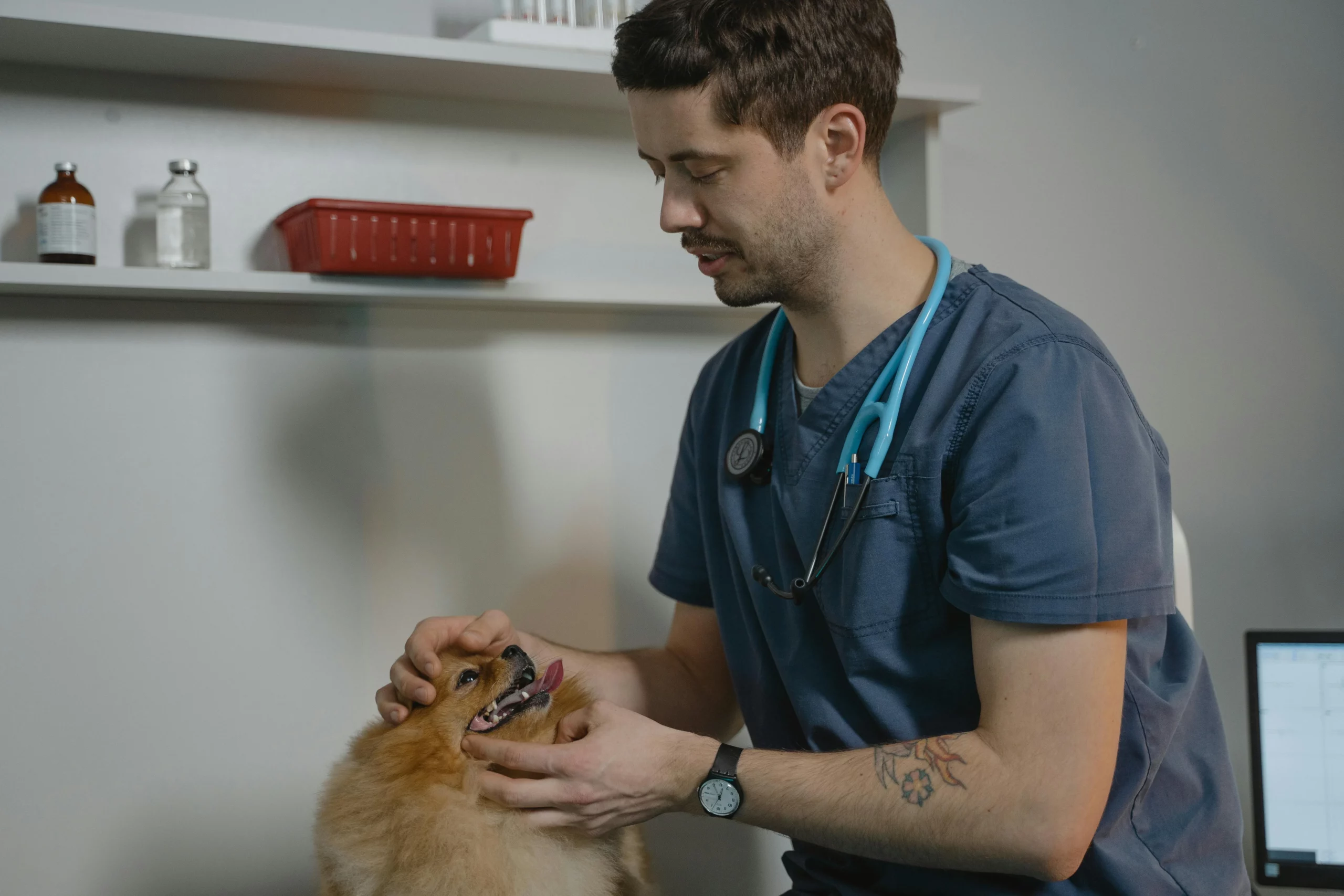Your pet has recently had surgery under general anaesthesia, such as BOAS (Brachycephalic Obstructive Airway Syndrome) correction or desexing. Good home care over the coming days will support a smooth and safe recovery.
Will get a deep dive and explain what you can expect after each procedure, how to manage your pet’s care at home, and when to follow up. For any concerns or ongoing support, visit Centenary Vet Clinic & Hospital.
Post-Operative Care for BOAS Surgery
What to Expect After BOAS Surgery:
- Breathing Improvement: Most dogs will have noticeably quieter breathing right after surgery. Swelling will gradually improve over the next 1-2 weeks.
- Bleeding: You may notice small amounts of blood around the nostrils or mouth for the first 24 hours. If there is significant bleeding, contact your vet immediately or visit an emergency vet.
- Swallowing or Retching: Some dogs may retch or vomit or swallow excessively in the first 5-7 days after surgery. There is medication to help with this, so please consult your vet if these symptoms persist.
- Sutures: Small dissolvable sutures may be visible around the nostrils. These will fall out on their own in a couple of weeks.
- Elizabethan Collar: Your dog will wear an Elizabethan collar to prevent licking at the surgical site. Keep this collar on until the 10-14 day post-op check.
What to Do After BOAS Surgery:
- Monitor for Breathing Issues: If your dog appears to be struggling to breathe, seek emergency care immediately. You may be advised to transfer your dog to an emergency centre for overnight observation if necessary.
- Follow-up Appointment: Your vet will schedule a recheck in 5-7 days after surgery.
- Activity Restrictions: Limit all boisterous activity for the first 2 weeks. No running, jumping, or rough play with other dogs. Keep your dog cool and prevent overheating.
- Diet: For the first 2 weeks, feed soft food only. No hard biscuits, bones, or toys.
Medication After BOAS Surgery:
Your dog will be sent home with pain relief and may also receive medication such as an antacid, antiemetic, or anti-inflammatory. Follow the instructions on the label carefully and contact your trusted vet if you have any concerns.
Post-Operative Care for Desexing (Spay/Neuter)
What to Expect After Desexing Surgery:
- Post-Anaesthesia Care: Your pet may be drowsy or restless after the procedure but should return to normal within a few hours or by the next morning. Provide a warm and quiet place for your pet to rest.
- Shaved Leg: One of your pet’s legs will be shaved where the intravenous catheter was placed. This allows for intravenous fluids, which may lead to more frequent urination for the next 12-24 hours. If a bandage is applied, remove it after 30 minutes, but do not leave it on overnight.
- Coughing: Some pets may cough due to irritation from the oxygen tubing used during the procedure. This should subside within 24-48 hours, but if it persists, inform us at the recheck appointment.
- Appetite: Your pet may not be interested in food immediately after surgery, which is normal. Offer a half portion of their normal meal in the evening. If your pet vomits, wait until the next day before offering food again. Monitor for persistent vomiting or diarrhoea and contact us if necessary.
Wound Care After Desexing Surgery:
- Elizabethan Collar: Your pet will wear an Elizabethan collar to prevent licking at the surgical site. It must remain on until the 10-14 day checkup.
- Dressings: You may notice a light dressing over the surgery site, which can fall off before the recheck appointment. This is normal.
- Daily Monitoring: Check the surgery site daily for swelling, redness, discharge, or foul odour. If you notice any changes, contact us immediately.
- Bathing and Exercise: Do not bathe your pet until the wound has fully healed after the 10-14 day recheck. Exercise should be restricted until the recheck. No running, jumping, or rough play. Short, calm leash walks are fine if your pet is doing well.
Ear Tattoo: As part of the legal requirement, your pet will have a tattoo in their left ear to indicate they’ve been desexed. This may cause temporary discolouration of the fur, which will wash out over time.
Medication After Desexing Surgery:
Your pet has received a pain relief injection at the time of recovery and will be sent home with oral pain relief medications. Please follow the directions provided on the label for proper administration.
General Aftercare for Both Procedures:
- Activity: No running, jumping, or rough play with other pets for the first 2 weeks post-surgery. Keep your pet calm to prevent complications.
- Diet: Soft food is recommended for both BOAS and desexing surgeries for the first 2 weeks. Avoid hard biscuits, bones, and toys.
- Collar Care: The Elizabethan collar should stay on until the recheck appointment, which will be scheduled within 10-14 days.
- Recheck Appointment: Your vet will schedule a follow-up appointment to monitor your pet’s recovery, usually within 3-5 days after surgery and 10-14 days for a second check up.
At Centenary Vets, we understand that recovery doesn’t end when your pet leaves our clinic. That’s why our Commitment to Care Plans include ongoing support and guidance during their healing process. Whether your pet is recovering from surgery, illness, or a routine procedure, our team is here to help every step of the way.If you have any concerns or notice any unusual symptoms, please contact our clinic immediately. Thank you for caring for your pet during their recovery process your attentiveness makes all the difference.



